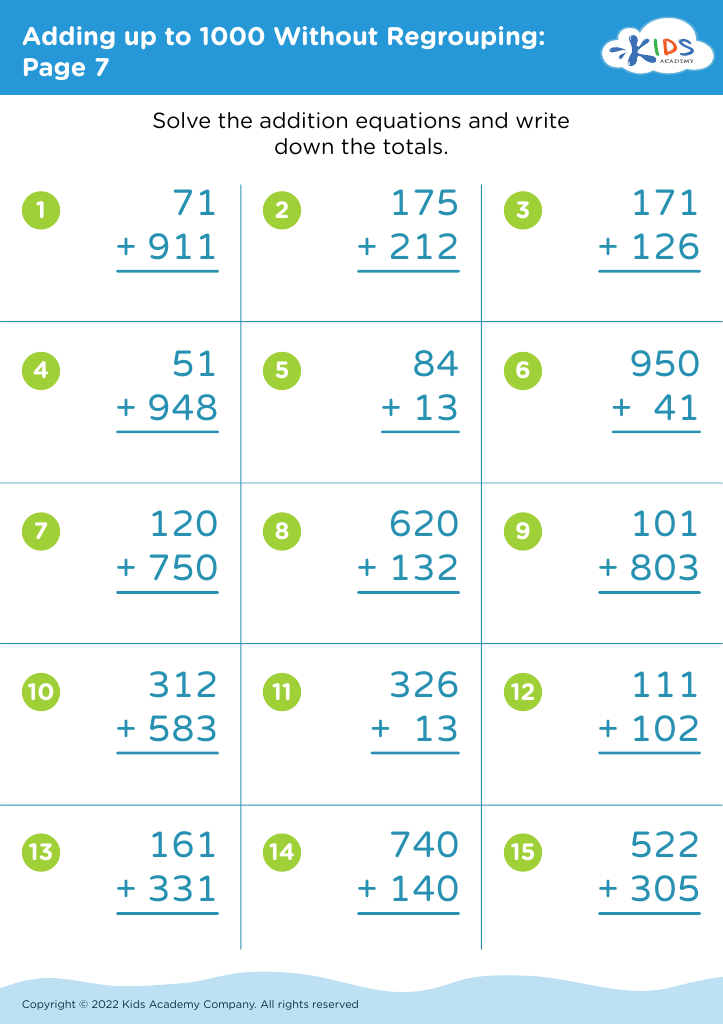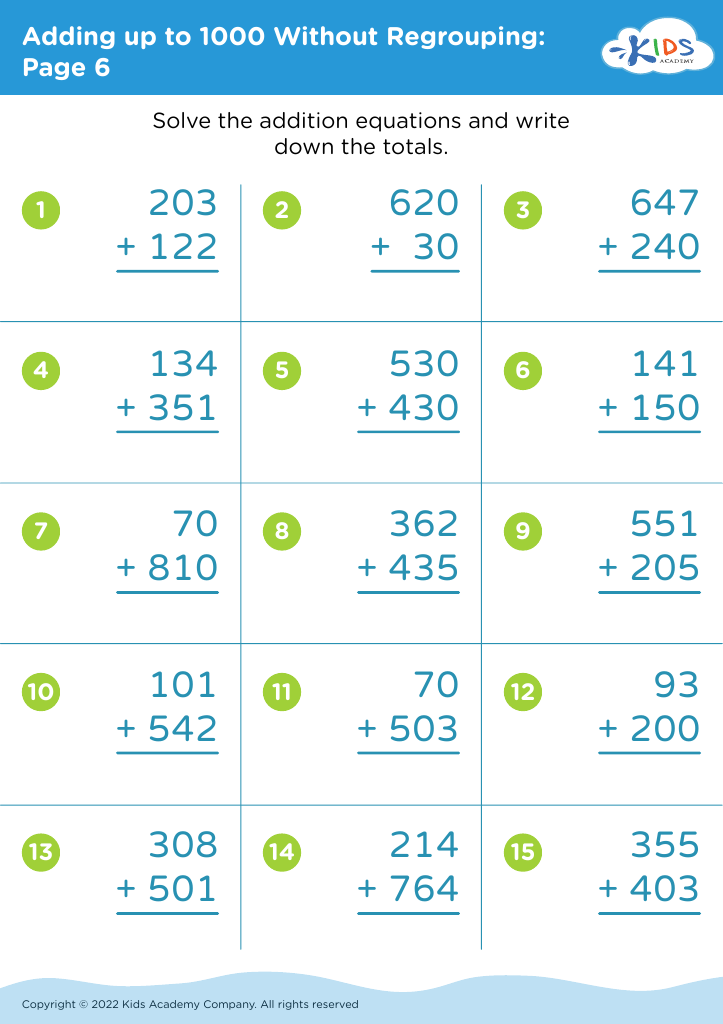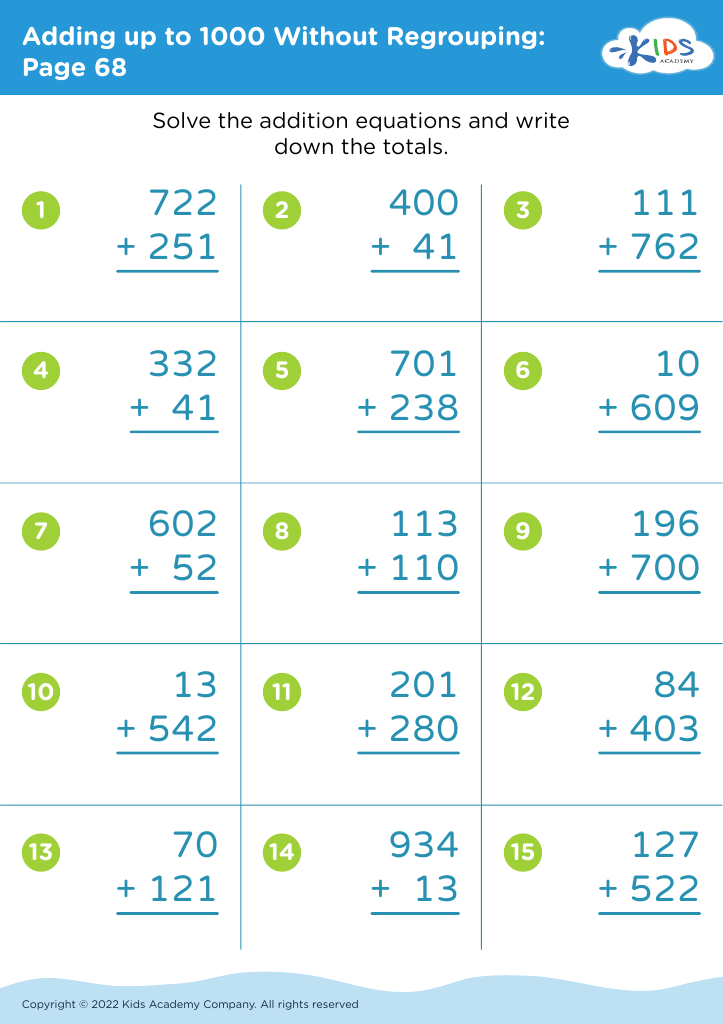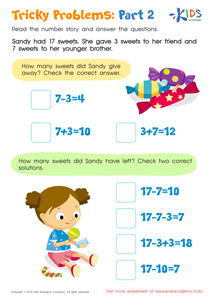Improving counting skills Grade 2 Adding up to 1000 Worksheets
4 filtered results
-
From - To
Boost your second grader's counting skills with our engaging "Improving Counting Skills: Adding Up to 1000 Worksheets!" Designed for young learners, these worksheets provide a variety of fun exercises to reinforce addition and counting concepts. Each activity aims to enhance number recognition and promote confidence as students practice adding numbers up to 1000. Tailored to align with Grade 2 mathematics standards, our resources encourage independent learning and comprehension at an enjoyable pace. Give your child a solid foundation in mathematics and watch them thrive with these interactive worksheets that make counting fun and rewarding! Perfect for homework or classroom use.
Improving counting skills in second graders, especially when adding up to 1000, is essential for several reasons. First, strong counting abilities form the foundation for future mathematical concepts. As students progress, they will encounter more complex arithmetic, and a solid grasp of counting will make these topics easier to understand.
Counting skills also promote critical thinking and problem-solving. When students can accurately count and add numbers, they become more confident in tackling mathematical challenges. This confidence translates to a positive attitude towards math, which is crucial as they advance in their education.
Furthermore, enhancing counting skills lays the groundwork for real-world applications. Understanding numbers helps students learn about money, time management, and basic measurements—skills they will use throughout their lives.
Additionally, improved counting abilities support overall cognitive development. Engaging with numbers boosts memory, concentration, and logical reasoning—crucial cognitive skills that benefit children in all subjects, not just math.
Finally, for teachers and parents, fostering these skills ensures that students are meeting educational benchmarks, making interventions or support timely and effective. By prioritizing counting skills, adults help build a strong mathematical foundation essential for future success.















